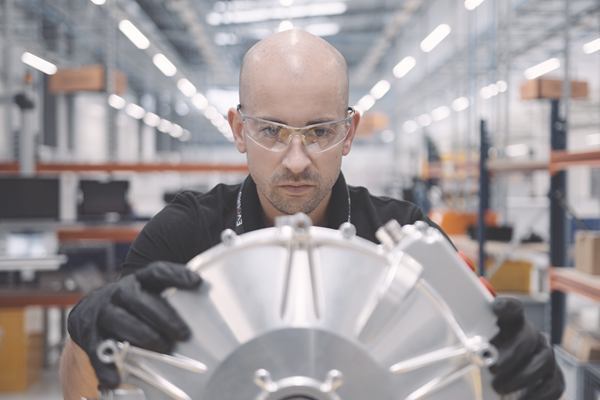Sustainability: Brands must educate consumers, and reform themselves

Jos Harrison at Reckitt asks how brands are still putting sustainable behaviour on the individual – and getting away with it
“Would you pay more for a sustainable product?”. “Would you choose a brand for its sustainability credentials?”. “Does this sustainable packaging look good quality to you?”.
These are some typical questions FMCG brand owners are still asking – whether in market research, trend forecasting or via the media.
But should we still be posing these questions? Why is this continued focus on the individual? Why should someone pay more for a sustainable product? Why should they have to make a choice between environmentally friendly or not? Why should they have to consider compromising on quality?
For too long, we have been looking at sustainability in the wrong way. These questions clearly show that many industries are still putting the responsibility for sustainable behaviour solely onto their users.
It’s been easier for brands to allow the media to lead the narrative that it’s up to the individual to recycle more, not use plastic bags, switch to refill, make the right choices. Many industries allow and even actively drive this perspective.
Tackling a faulty narrative
It’s time to change this narrative – and a chance for us to make a positive difference. Rather than putting it all on the individual, companies – especially larger ones in FMCG – have to take responsibility for the way people buy, use, and dispose of their products to create a more sustainable model.
After all, it is largely our industry that created this challenge in the first place.
Over years, it has encouraged a certain attitude and expectation in people: immediacy, convenience, minimal effort on the part of the individual. And the recent addition of digital communications channels to all our lives has only heightened this. This has resulted in the end-of-life disposal of products not receiving the focus it should.
The world has been very slow to acknowledge the nature of the problem and the part that all entities (brand owner, retailer, individual) play in it. Change is difficult and change at scale is a thousand times more difficult. But we’ve gone way past the point where we can pretend that it’s ‘business as usual’.
To focus on the idea of the end user’s responsibility is no longer appropriate. It’s up to us to alter the way that we make and sell products, to create a shift in people’s behaviour automatically, even imperceptibly.
This invariably requires investment and usually entails a degree of complexity that businesses would rather avoid. But we no longer have the luxury to choose.
Challenging the paradigm
We can start by looking at the existing marketing communications paradigm.
We have coached ourselves into the assumptions that every interaction is an opportunity to sell. But we also assume that people aren’t prepared, or don’t care enough, to hear about the sustainability requirements what we are selling, and why therefore a more sustainable product might look different, feel different – or need to be used differently.
We must move away from this assumption and invest the time, effort and money to inform, educate and justify these more sustainable product solutions and business models. We need to start reprioritising what we communicate on shelf. We need to invest in above the line and the messaging that sets up the shopper journey in store. So people understand why products, aisles or displays look different.
For example, when it comes to the introduction of refilling stations in grocery or homecare stores, there’s a significant pathway of communication from where you buy a product, to the refilling station. It can’t just be that you happen across the refilling station at the end of an aisle because the retailers didn’t want to commit too much space to it; or the brands didn’t want to commit any communications support to guide you to it because it’s all an ‘experiment’. It can’t be an experiment anymore.
We have to get on and change these things; help people to adapt and adjust, knowing that convenience, ease of adoption, and cost are really big consideration factors, things that we need to overcome to shift behaviours.
The journey to an improved solution may be complex, but doesn’t need to be difficult. Brands can walk the journey hand-in-hand with their shoppers and users. And that partnership, when fruitful, will result in advocates who are prepared to recommend that brand as a paragon of sustainability.
To achieve this, we also need to be more proactive in figuring out the way to operationalise principles of reuse, and sustainability more generally. Global reuse platform Loop for example is constantly trialling different packaging formats across many different categories – recently in a one-year partnership with UK retailer Tesco.
Along with other similar ventures, it’s trying to learn as much as possible about what works for people, what is logical, what is easy to adopt, what requires the least communication to shift behaviour. Always with the intention of pinpointing key learnings and drawing up a playbook of how to activate more sustainable circular propositions, most effectively and at the largest scale.
Many brands are onboard with these service-based facilitator partners, and we as an industry should be driving this much harder.
We need more of this iterative approach, to figure out how intuitive we can make sustainability adoption - through design, packaging and communication. Above all, we have to demonstrate commitment to these new approaches, in order for people to get the message that we need to change our historical ‘consumption’ paradigm.
A broad-scale change
But the shift required goes beyond creating products that are more sustainable. It requires a broad-scale business model change. The ‘Scope 3’ carbon footprint in FMCG is enormous (carbon dioxide generated by all interactions with the product throughout its entire manufacture and usage life).
We need to go from selling billions of things to the end user, to figuring out how to solve their problems without having to ship around these billions of items. We need to adjust the entire industry’s way of working – and thereby shift people’s attitudes and behaviours relating to ‘consumption’.
Ultimately, rather than FMCG – fast moving consumer goods – we need to be thinking about ‘Steadily Moving Human Solutions’.
The solution might be that a brand owner has a much larger, more diverse network of suppliers, a combination of raw materials and finished goods suppliers that are subcontracted so that everything is delivered in a much more local radius.
Research suggests that if we are to limit global warming to less than 1.5 degrees before the end of the century, every person on the planet needs to be living a ‘2-ton lifestyle’, reducing their carbon emissions to two tons per year. It is worth noting that two transatlantic flights blow that target out of the water in one fell swoop.
It requires a radical change to society. But the role that FMCG brands can play is huge. In fact our industry can shift to become a paragon of sustainable solution provision, leading a shift in people’s attitudes at a scale – and with an impact that hasn’t been seen since the industrial revolution.
Where a problem can be solved through a service, and that service can be engineered to be more sustainable, with a lower carbon footprint, less water usage and minimal plastic or other problematic materials, then that should be substituted for a product. And it should be as localised as possible. Enabling such solutions is a massive service we (as an FMCG industry) can provide for the world.
We have a long way to go as an industry. But we shouldn’t see this as the pain of changing. We should embrace this once-in-a-lifetime opportunity to create a new role for FMCG: enabling people to have a massive effect on that most critical of challenges - saving the planet.
Jos Harrison is Global Head of Brand Experience & Design at Reckitt
Main image courtesy of iStockPhoto.com

Business Reporter Team
Most Viewed
Winston House, 3rd Floor, Units 306-309, 2-4 Dollis Park, London, N3 1HF
23-29 Hendon Lane, London, N3 1RT
020 8349 4363
© 2025, Lyonsdown Limited. Business Reporter® is a registered trademark of Lyonsdown Ltd. VAT registration number: 830519543





